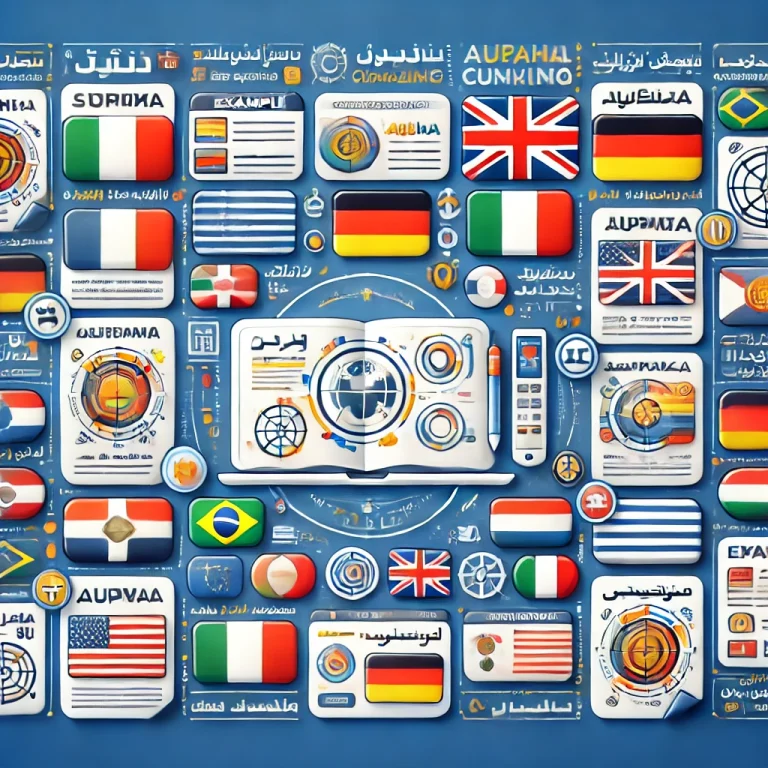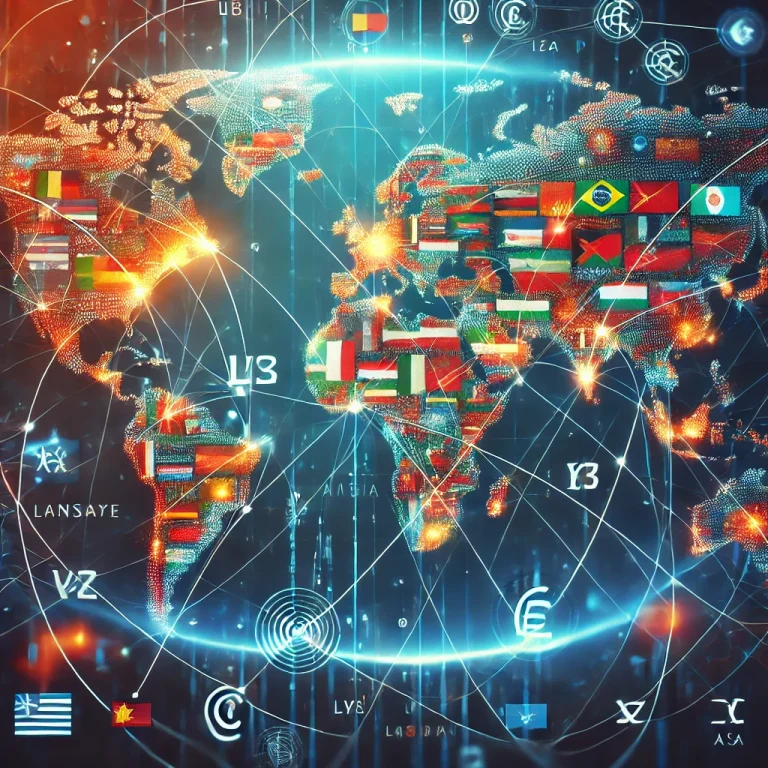In today’s globalized world, expanding a business beyond borders is essential for growth. However, language barriers often stand in the way of success. Business translation can break these barriers, allowing businesses to effectively communicate with international audiences, expand their market, and prevent costly misunderstandings. From contract translation to interpretation services, these solutions ensure that businesses speak the language of their customers.
The Role of Business Translation in Global Expansion
Business translation plays a crucial role in breaking down language barriers and making businesses more accessible globally. Whether it’s translating marketing materials or localizing product descriptions, translation enables businesses to resonate with international customers.
Importance of Localizing Content
Localization goes beyond mere translation. It adapts your content to fit the cultural and linguistic preferences of your target audience. For instance, what works in one market may not work in another due to cultural differences. Localization ensures your message is not only understood but also culturally relevant.
Example:
Coca-Cola has successfully localized its advertising campaigns across different countries, reflecting local customs, idioms, and language nuances.

How Multilingualism Helps Attract New Customers
Speaking to customers in their native language builds trust and rapport. Businesses that offer multilingual support or services can gain a competitive edge in new markets. A multilingual website or customer service team makes it easier for global customers to engage, thereby increasing retention and sales.
Core Types of Business Translation Services
Businesses require various types of translation services depending on the context. These services ensure that communication across borders is seamless and error-free.
Contract Translation for Legal Safety
Contract translation is essential when doing business internationally. Accurate translation ensures that all parties understand the legal terms and conditions, preventing miscommunication and potential lawsuits.
Example:
A U.S.-based company signing a partnership agreement with a Japanese firm needs accurate translation to ensure that the contract is legally binding in both countries.

Marketing and Advertising Translation
Marketing translation involves adapting your marketing materials, such as brochures, ads, and social media campaigns, to resonate with different markets. It’s important to not just translate but also to adapt the tone, humor, and cultural references to avoid misunderstandings. To learn more about global marketing strategies, visit the American Marketing Association.
Website Translation for a Wider Reach
Translating your website is key to reaching new global customers. Website translation ensures that your content is accessible in multiple languages, making it easier for international users to navigate your services or products. This also improves your website’s SEO, helping you rank better in local search results.
The Benefits of Interpretation Services for Business Growth
While written translation is important, verbal communication is crucial in meetings, conferences, and negotiations. Interpretation services bridge the communication gap in real-time.
On-site Interpretation for International Conferences
On-site interpretation enables businesses to hold international conferences with participants from diverse linguistic backgrounds. It ensures that everyone can participate and understand the discussion, regardless of language.
Example:
At the United Nations, on-site interpretation ensures smooth communication between representatives from different countries.
Remote Interpretation for Global Communication
With the rise of virtual meetings, remote interpretation services are becoming indispensable. These services allow businesses to conduct virtual meetings with international partners or clients, ensuring effective communication.
Example:
Post-pandemic, many businesses have shifted to virtual meetings. Remote interpretation services help ensure smooth communication during these sessions, preventing misunderstandings.
Industry-Specific Business Translation Needs
Some industries have specific translation needs that go beyond general business translation. Here’s how translation serves various sectors.
Financial Translation Services
Financial documents such as balance sheets, annual reports, and contracts often contain complex terminology. Financial translation ensures that these documents are translated accurately, maintaining the integrity of the financial data.
Medical Translation Services
In the medical field, accuracy is critical. Medical translation is required for translating patient information, medical records, and research papers. A mistake in translating medical documents can lead to serious consequences.

Technical Translation for Global Manufacturers
For manufacturers, technical translation involves translating user manuals, product instructions, and safety guidelines. These documents need precise translation to ensure safety and compliance in different countries.
How AI and Machine Translation Impact Business Translation
Technology has revolutionized the translation industry, but human translators still play a vital role.
The Rise of Machine Translation in Business
AI-powered translation tools like Google Translate offer quick and cost-effective solutions for simple translation tasks. However, machine translation lacks the ability to understand context, cultural nuances, or industry-specific jargon, which are critical in business translation.
When Human Translators Are Still Irreplaceable
Despite advances in AI, human translators are essential for translating complex materials such as legal documents or marketing content. Human translators bring cultural awareness and expertise that machines cannot replicate.
Best Practices for Choosing a Business Translation Provider
Choosing the right translation provider can make all the difference in your global expansion efforts.
Key Factors to Consider
When selecting a translation service, look for experience, industry expertise, and a proven track record. Make sure the provider has expertise in your specific industry to ensure accuracy and relevance. For more information about our professional business translation services, visit our services page.
The Importance of Native Translators
Native translators understand the subtle nuances of their language and culture, which ensures the accuracy and relevance of the translation. They also help avoid potentially costly cultural missteps.
Real-Life Case Studies: Business Success Stories Through Translation
Case studies illustrate the real-world impact of professional business translation.
Case Study 1: Expanding a Retail Brand into European Markets
A major retail brand successfully expanded into Europe by localizing its product descriptions, marketing campaigns, and website. With the help of business translation, they saw an increase in sales and customer engagement across multiple European countries.
Case Study 2: Legal Contract Translation for an International Merger
In this case, a global merger between two companies from different countries was made possible by accurate contract translation. Without proper translation, there could have been misunderstandings leading to disputes and potential legal ramifications.
Conclusion: Why Investing in Business Translation Is Essential
Expanding your business globally requires clear communication across different languages. Business translation is essential for ensuring your brand’s message is consistent, culturally relevant, and legally sound in international markets. From translating contracts to providing interpretation services, investing in professional translation services is crucial for long-term global success.
FAQs: Common Questions About Business Translation
What is the cost of business translation services?
The cost depends on the complexity of the content, language pairs, and specific industry requirements. Legal and technical translations tend to be more expensive due to their specialized nature.
How long does it take to complete a business translation project?
Timelines can vary depending on the length and complexity of the content. Short projects can be completed in a few days, while more extensive projects may take several weeks.
Can machine translation replace human translators?
Machine translation is helpful for basic tasks, but for business-critical translations, human translators are still essential to ensure accuracy, context, and cultural relevance.
What are the challenges of translating legal documents?
Legal translations require precision to avoid misunderstandings that could lead to legal disputes. It’s important to work with professionals who specialize in contract translation.
Do I need interpretation services for virtual meetings?
Yes, remote interpretation services are increasingly valuable for virtual meetings, ensuring that communication remains clear between participants who speak different languages.


